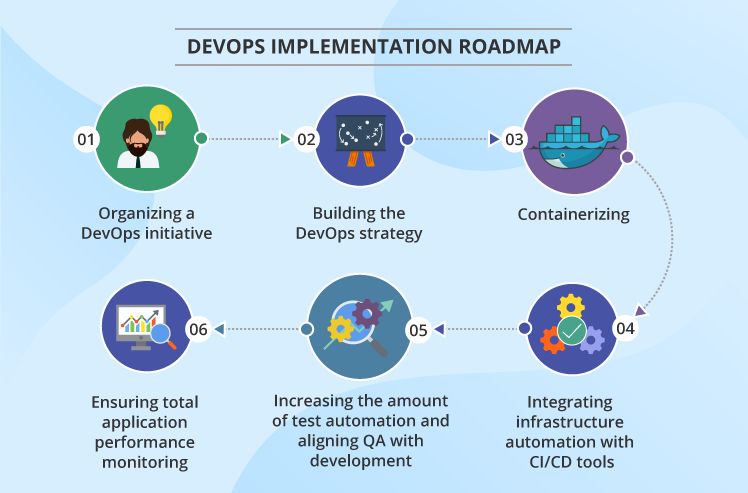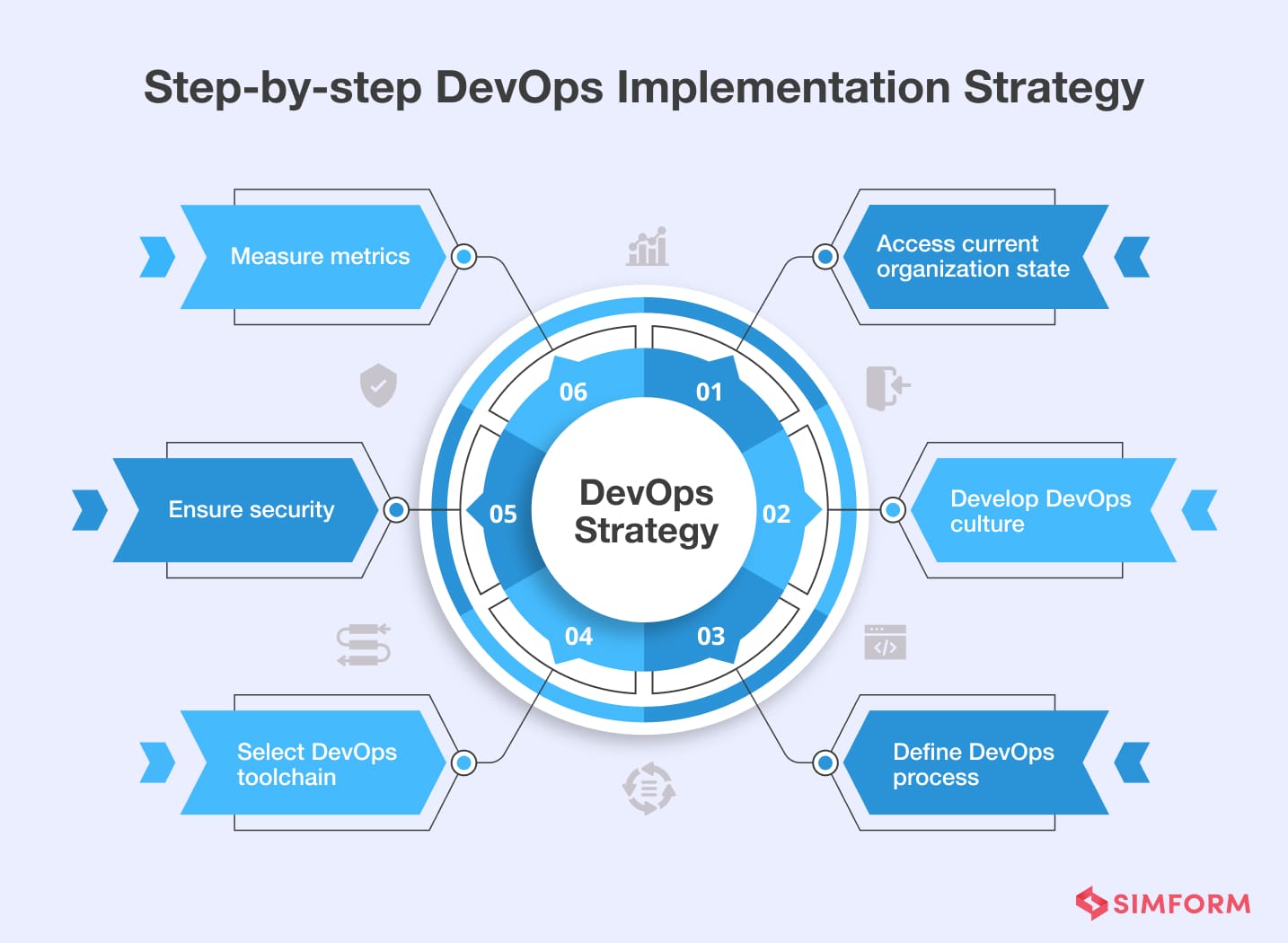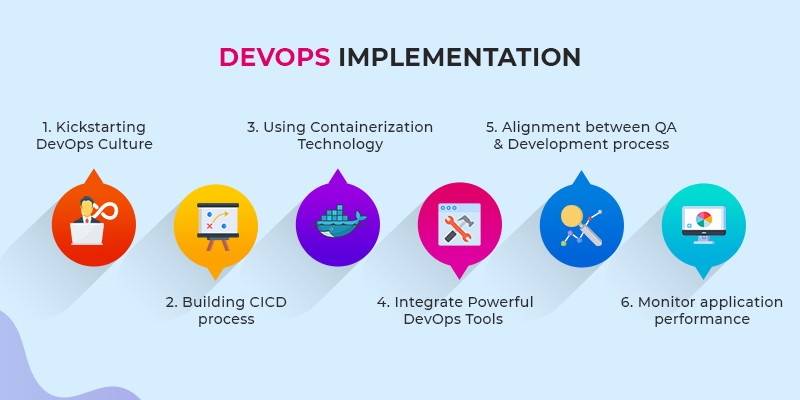Are you curious about how to implement DevOps in your organization? Do you want to learn how to use DevOps to make your organization’s operations more efficient? Well, you’ve come to the right place! This article will provide a step-by-step guide on how to implement DevOps in your organization. You’ll learn about the benefits of DevOps, how to set up DevOps infrastructure, and the best practices for successful DevOps implementation. So, if you’re a student or entrepreneur looking to learn how to implement DevOps in your organization, this article has you covered!
What is DevOps and How It Can Benefit Your Organization

DevOps is an innovative approach to software development that combines development and operations processes. It’s a way of working that enables organizations to quickly deliver high-quality applications and services. DevOps helps organizations reduce costs, improve customer satisfaction, and streamline their operations. By leveraging automation and collaboration, DevOps can help organizations create quality applications with faster time to market. DevOps also helps organizations reduce risk, increase efficiency, and improve communication between teams. With DevOps, organizations can quickly deliver high-quality applications and services and gain competitive advantages.
Setting Up a DevOps Pipeline

If you want to implement DevOps in your organization, setting up a DevOps pipeline is a key step. It’s basically a set of processes and tools that allow for streamlined and automated software delivery. It helps to reduce deployment times, improve communication between teams, and encourages collaboration between developers, operations, and other teams. To set up a DevOps pipeline, you need to identify the stages of your software delivery cycle, create automated tests, and configure deployment processes. Additionally, you should consider security, scalability, and monitoring. With the right DevOps pipeline, you can expect faster delivery, improved collaboration, and better quality software.
Understanding the Role of Automation in DevOps

If you’re looking to implement DevOps in your organization, understanding the role of automation is key. Automation is an essential tool for DevOps, as it makes it easier to deploy and manage applications. Automation reduces the amount of manual intervention required, allowing you to scale your operations quickly and efficiently. Additionally, automation can help you reduce errors, save time and money, and improve the quality of your products. Automation also helps you streamline processes and increase visibility, allowing you to identify and address issues more quickly. By automating processes, you can also ensure a smoother transition between development and operations. Automation is an integral part of DevOps, and understanding its role is essential to successful implementation.
Best Practices for Avoiding Plagiarism

When it comes to avoiding plagiarism, the best practice is to make sure to cite your sources properly. This means attributing any information you use in your work to its original source. Additionally, if you are using ideas or words from another person, you should always make sure to put them in quotation marks. Taking these steps will ensure that you are giving proper credit to the original author. If you do not cite your sources, you are essentially stealing someone else’s hard work and that is plagiarism. So make sure to always give proper recognition to the original author.
Tips for Implementing DevOps Successfully in Your Organization

If you want to implement DevOps successfully in your organization, there are some key tips you should consider. Firstly, make sure to involve the right stakeholders. Effective collaboration between stakeholders is key to success. Secondly, define measurable goals. Doing this will help you measure your progress. Thirdly, establish a culture of continuous learning and improvement. Make sure your team is always up to date with the latest DevOps trends. Lastly, automate processes whenever possible. Automation will save you time and energy. Implementing these tips will ensure DevOps success in your organization.





GIPHY App Key not set. Please check settings